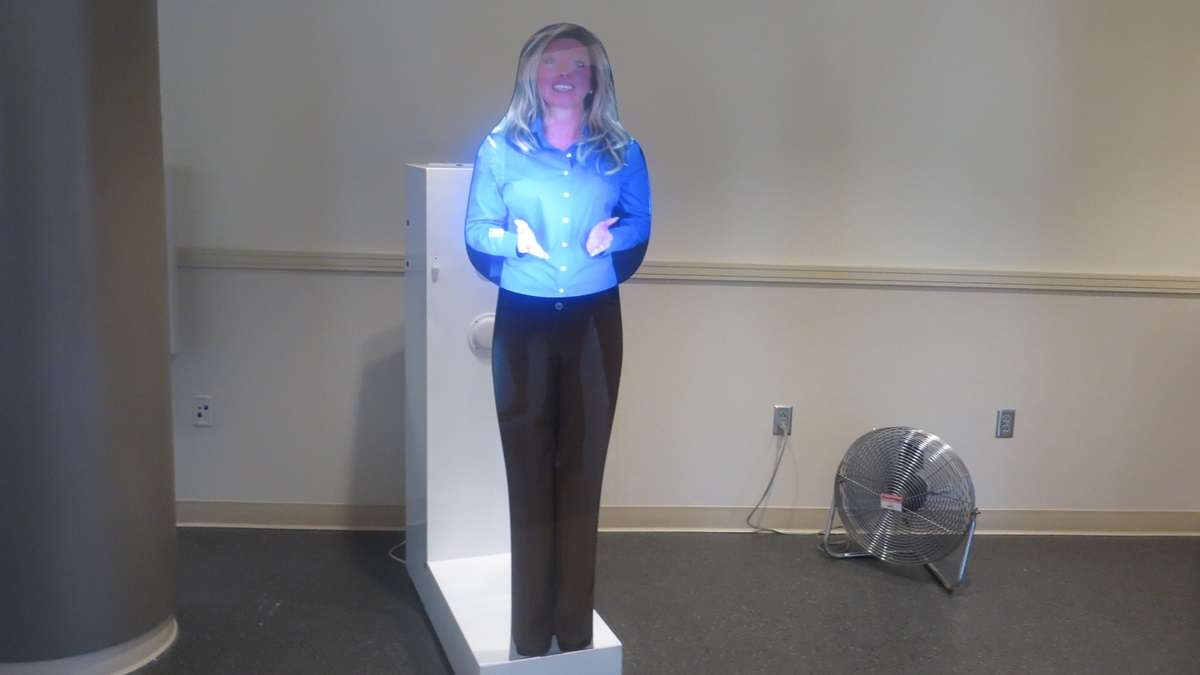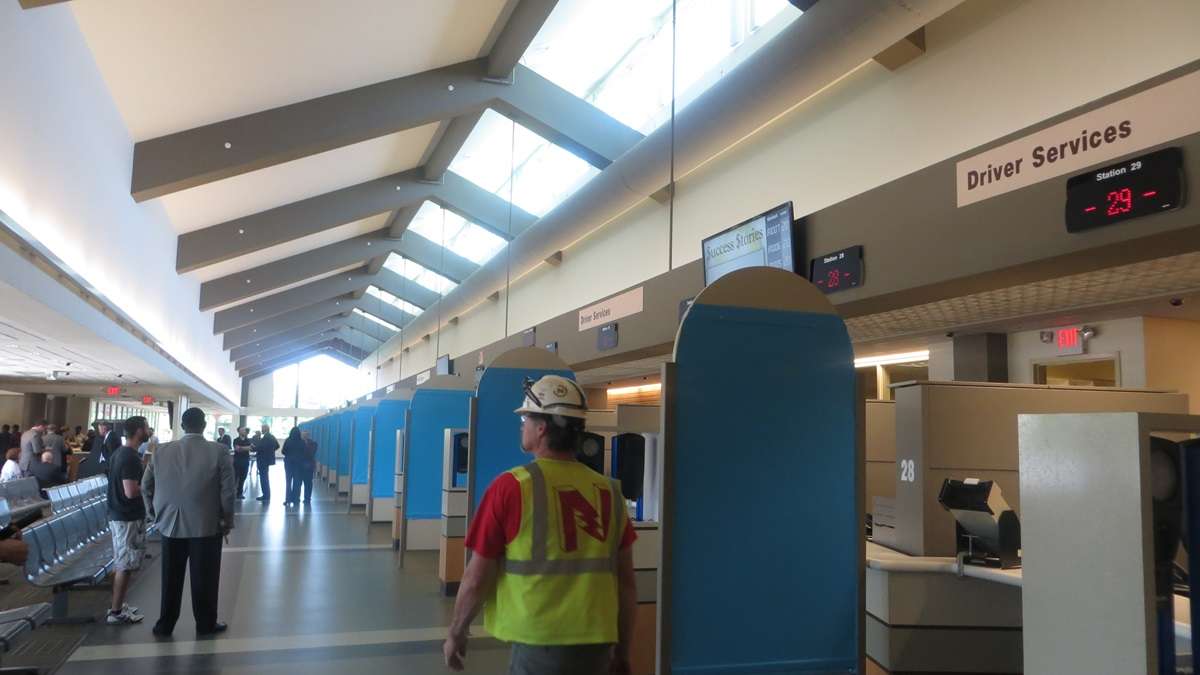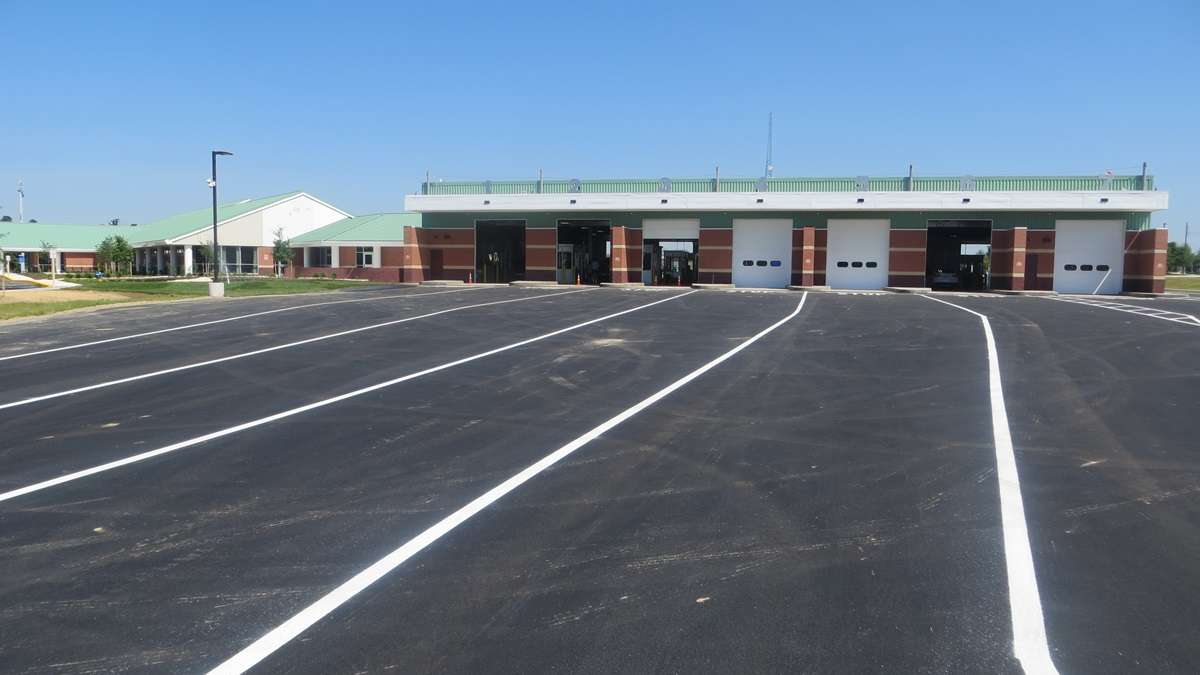76ers’ Camden facility won’t be the boon we’ve been told it will be
-

-

-

-

-

-

File photo: A Delaware DMV office. (Mark Eichmann/WHYY)
-

The announcement of the Philadelphia 76ers moving their practice facility from South Philadelphia to Camden, New Jersey, comes as great news — for some. The tax credits used to lure the organization across the river will not help Philadelphia, and it will actually work against the lower- and middle-income working class of Camden.
The Sixers organization can receive up to $82 million in tax credits if they stay in the city for 15 years. This is more than just another Starbucks or Taco Bell franchise opening, even though small companies produce great community results. We’re talking about a new NBA practice facility, involving the corporate portion of a professional basketball team.
The announcement tells a story of 250 new jobs being created for the city of Camden. The City of Philadelphia and Pennsylvania may now be the loser in the game of keeping a corporate taxpayer with this move.
The 250 jobs may be new for Camden, but 200 of the positions have been filled so far by team administrators, players and staff currently working in the South Philadelphia Sports Complex and possibly living in Pennsylvania or already rooted in another section of New Jersey. So, there are actually only 50 new jobs, and the remainder is just an economic substitution effect.
In addition, the employees who live in Pennsylvania and work in Camden do not pay New Jersey income tax. The two states have reciprocal agreements on state income taxes. If the Sixers employees already live in New Jersey, there is no additional tax revenue gained. And if an employee lives in Philadelphia and drives to the practice facility, the wage tax stays in the City of Brotherly Love or other suburban municipalities.
Camden’s goals are noble; their means misguided
The New Jersey Economic Development Authority, along with the Economic Opportunity Act’s GROW in New Jersey program, is a very noble attempt at revitalization. The Department and its employees are doing their best to bring redevelopment and foster growth in the distressed cities of New Jersey. Most economic development programs throughout the country concentrate on job creation — but this is only one aspect of revitalization. The other areas to focus are job retention and community retention.
This can be achieved by attracting a mix of housing and commercial business as the starting point of economic redevelopment. Camden can create an environment where businesses relocate and their employees live, work, and shop in a safe walkable community. Unemployment in Camden is roughly two-and-a-half times higher than the current national rate, so tax credits are not the only incentives to revive this city.
The tax credits end up being a regressive tax on the middle- and lower-income working class. As the working-class taxpaying residents continue to struggle with higher energy and food prices, Camden was able to secure the $82 million tax credit through the state for a basketball team whose income stream includes revenue sharing with the NBA. The lower- and middle-class wage earners do not benefit from any league revenue sharing, but they can benefit from the elimination of tax credits. Tax credits for successful organizations like the Sixers leave less incentive for entrepreneurial startups and small business creation. Firms that provide the real main street business community are not afforded the same proportion of tax credits.
One organization that is helping is the Broadway Main Street, a state-designated main street program, and they are doing what they can with the resources they have.
There’s a better way
I would like to see the focus on Camden’s revitalization to be similar to the successful, rejuvenated Philadelphia Navy Yard. In Camden, the state, county and city have secured a good base with existing and improved infrastructure. This has aided in the development of entertainment and recreation venues in the waterfront area. So the next logical focus would be on attracting mixed-income housing and walkable retail space using tax credits that equal those of a major league professional sports team.
However, the Sixers tax credits are a done deal, so building the practice facility should be structured with a cluster of other offices for entertainment or sports companies to piggyback on as part of the expansion. The $82 million in tax credits could be filtered to developers and young people willing to realize their dream with a startup business idea. Camden City Council should also recommend, by ordinance, the remaining news jobs being created come from within the City of Camden or at the very least Camden County.
—
David Fiorenza is a professsor of urban and public sector economics at Villanova School of Business. He has over 23 years of experience working for many notable townships and boroughs in Pennsylvania. He has been at Villanova full time since 2008.
WHYY is your source for fact-based, in-depth journalism and information. As a nonprofit organization, we rely on financial support from readers like you. Please give today.

